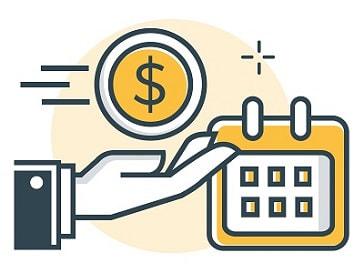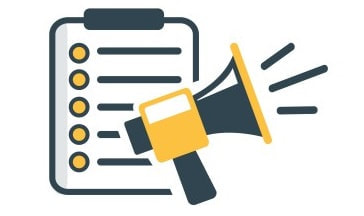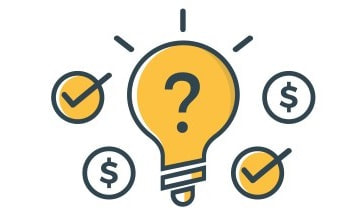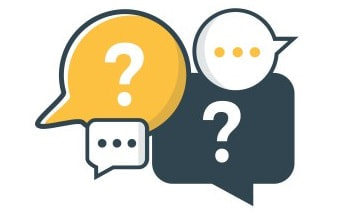Jobseeker Support Benefit Rates 2024 and 2025
Find out the current rates of Jobseeker Support. Our table and guide outline everything you need to know about receiving your weekly payment.
Updated 24 July 2024
Summary of Jobseeker Support Benefit Rates
Our benefit rates guide covers the following:
Summary of Jobseeker Support Benefit Rates
- What you'll receive depends on whether you're single or living as part of a couple and have children.
- You may also qualify for extra help like an Accommodation Supplement, Disability Allowance and Temporary Additional Support depending on your specific circumstances.
Our benefit rates guide covers the following:
NZ Jobseeker Support Rates for 1 April 2024 and up to 31 March 2025 For a Qualifying Individual
Our table presents how much you'll receive below, depending on your situation.
Valid from 1 April 2024 until 31 March 2025:
Valid from 1 April 2024 until 31 March 2025:
Weekly Amount (net/after tax) |
Annual Amount (net/after tax) |
|
Single 18-19 years old (living at home) |
$262.30 |
$13,639.60 |
Single 18-19 years old (living away from home) |
$307.87 |
$16,009.24 |
Single 20-24 years old |
$307.87 |
$16,009.24 |
Single 25 years and over |
$353.46 |
$18,379.92 |
Couple, without children |
$601.46 (total payment for both people) |
$31,275.92 |
Couple with partner on benefit, with children |
$635.10 (total payment for both people) |
$33,025.2 |
Sole Parent |
$494.80 |
$25,729.60 |
Couple, partner not on benefit, with children, total |
$317.55 |
$16,512.60 |
Important: While these rates might seem low, they may just be the beginning of your benefit entitlement. You may also qualify for extra help like an Accommodation Supplement, Disability Allowance and Temporary Additional Support depending on your specific circumstances.
Source: Work and Income Payment Rates
Source: Work and Income Payment Rates
|
Are you interested in completing paid market research surveys?
We've identified three outstanding survey websites renowned for their reliability and consistent rewards for New Zealanders.
Why choose these platforms?
Know this: Signups take around 30 seconds to a couple of minutes, and the rewards offered are long-term, making them more attractive than one-off survey opportunities. Advertising Disclaimer - Our list is comprised of trusted and reliable companies that help New Zealanders to make money online. MoneyHub may be paid if you click or sign up to an offer, but this does not influence the ordering or reporting below. |
Christopher Walsh
MoneyHub Founder and Head of Research |
Important: JobSeeker Support: Information on Partner's Income
Whether people are single or a couple affects eligibility for benefits and the payment rate per Work & Income guidance. This Reddit post in 2023 gives an example of the issues. Navigating the JobSeeker Support application can be challenging, especially when understanding how your partner's income affects your eligibility. To help you save time and avoid frustration, here are some crucial points you need to know:
- Eligibility Threshold: Generally, if your partner earns more than around $1,000 a week (gross), you are not eligible for JobSeeker Support.
- Accommodation Supplement: If your partner earns more than around $1,400 a week (gross), you are not eligible for the Accommodation Supplement.
- Important: Work & Income doesn't publish this threshold clearly, but our research team believes that around $1,000+ (Job Seeker) and $1,400+ (Accommodation Supplement) are accurate.
- Understanding these thresholds can save you from spending time on applications if your partner's income disqualifies you.
- Before starting the application, check your partner's income against these thresholds. If you are unsure about your eligibility, contact Work and Income directly to clarify before applying. BenefitMe has more details.
What is Jobseeker Support?
- Jobseeker Support is a weekly payment. It's paid (like a job) a week in arrears. This means you usually have to wait at least a week to get a payment, but you also receive a payment after you restart work to help you transition.
- The amount you receive is based on your age, if you have a partner and if you have children. The Government reviews benefit rates each year, and there is usually a small adjustment on 1 April to account for changes in the cost of living.
- Work and Income publish the rates on their website here.
- Right now, a single person over 25 can expect to receive around $250 to $335 in the hand each week. A couple can expect to receive around $275 each - these rates increase if you have children.
- Benefits are paid directly into your bank account on the same day each week, either Tuesday, Wednesday or Thursday.
- You may also qualify for extra help like an Accommodation Supplement, Disability Allowance and Temporary Additional Support depending on your specific circumstances.
What is my tax code?
The tax code will be "M" for most people receiving a benefit. The IRD's tax code finder tool asks a few questions and determines your tax code.
Qualifying and Applying for Benefit Payments
There are three main eligibility requirements for Jobseeker Support, which we outline in detail:
1. You are looking for work and willing to accept suitable jobs
2. You are a New Zealand citizen or permanent resident who normally lives in New Zealand
3. You don't have income that reduces your entitlement each week
Be aware:
Our Jobseeker Support Guide has more details.
How to Apply
Your entitlement to Jobseeker Support is generally backdated to the earliest day possible. This will usually be either when you became eligible for assistance or the first time you contacted Work and Income, whichever happened first. As soon as you know you will be out of work, call Work and Income to apply or complete an online application.
1. You are looking for work and willing to accept suitable jobs
- This means you can accept up to 30 hours of work per week.
- The definition of "suitable" is vague and trips people up out of fear they'll be sent to work as a labourer. While that's technically possible, Work and Income generally interpret suitable work as "work you are capable of doing".
- Work and Income want people to find a job they'll stay in, so they are fairly pragmatic.
- Pay rate doesn't come into it either - if you were on $100,000 and are offered a job on $50,000, Work and Income will expect you to accept on the basis that it's better than the benefit.
- Don't let this put you off applying, though - this obligation isn't widely enforced for people proactively looking for work and (usually) only comes up if you turn down interviews or work that Work and Income refer you to.
2. You are a New Zealand citizen or permanent resident who normally lives in New Zealand
- If you think this requirement will rule you out, apply anyway - there are several hardship provisions and "emergency" benefits that Work and Income can grant to people who don't qualify for Job Seeker due to not having residency grounds.
- Coming back from an OE and can't find a job? You are eligible - it's sufficient to intend to live in New Zealand for the foreseeable future to meet the "normally lives in New Zealand" test.
3. You don't have income that reduces your entitlement each week
- Most main benefits are subject to an income test. While most people think of income as coming from a job, it can also come from a business, investments, rent payments or sometimes even gifts.
- Broadly, if you regularly receive money and use it to buy things that people typically buy with money earned in a job - Work and Income may consider it income.
Be aware:
- If you have a source of income other than a job, it might make your application a bit more complex as Work and Income will need to investigate how much to change against your benefit entitlement.
- Generally, you can't run a business and also receive a benefit (because you have to be available for any work, not just work in your business), but you can work and earn part-time income.
- If in doubt, it's always best to apply anyway. The worst that can happen is the application is declined.
Our Jobseeker Support Guide has more details.
How to Apply
Your entitlement to Jobseeker Support is generally backdated to the earliest day possible. This will usually be either when you became eligible for assistance or the first time you contacted Work and Income, whichever happened first. As soon as you know you will be out of work, call Work and Income to apply or complete an online application.
Jobseeker Support and General Benefit Frequently Asked Questions
Benefits are usually straightforward, but questions do arise. Our summary of common queries below anticipates what's most important.
How much can I earn and still receive Jobseeker Support?
The amount varies depending on how much you receive. The maximum (or cut-off) is updated yearly and published on Community Law's website. You can earn $150+ per week before tax before any benefit payment reduction, but you still need to declare it.
When should I cancel my Jobseeker Support benefit?
You should let Work and Income know when you start full-time work so you don't get overpaid. If it doesn't work out, you can suspend your benefit for a few weeks (or if you have a trial period).
When you start work, it's a good idea to ask Work and Income to assess to see if you still qualify for things like Accommodation Supplement or Disability Allowance. You can continue to receive these while you work. If you owe any money (due to over-payments or advance payments of benefit) when you cancel, Work and Income will ask you to work out a repayment plan. Generally, an automatic payment is acceptable to sort this out.
When you start work, it's a good idea to ask Work and Income to assess to see if you still qualify for things like Accommodation Supplement or Disability Allowance. You can continue to receive these while you work. If you owe any money (due to over-payments or advance payments of benefit) when you cancel, Work and Income will ask you to work out a repayment plan. Generally, an automatic payment is acceptable to sort this out.
When do you receive a benefit payment?
Most benefits and payments (excluding NZ Super) are paid weekly. Per government guidance, if you get a weekly payment, your official pay day is either:
Know This: Once you have a payday (e.g. a Wednesday), it will never change even if you get another benefit or payment from Work and Income later. Some banks may process the payment the night before your payday, depending on who you bank with.
- Tuesday
- Wednesday, or
- Thursday
Know This: Once you have a payday (e.g. a Wednesday), it will never change even if you get another benefit or payment from Work and Income later. Some banks may process the payment the night before your payday, depending on who you bank with.
How much tax do you pay on New Zealand benefits, for example, Jobseeker Support?
- Tax is deducted from most benefits before you receive them per government guidance.
- Your tax code depends on your income situation; as a Jobseeker, your tax code is likely 'M' if you have no student loans and 'M SL' if you have student loans.
- For an exact number for your situation, our PAYE Calculator shows your after-tax income.
Related guides
- Navigating Work and Income Benefits
- Jobseeker Support
- Accommodation Supplement
- Disability Allowance
- MyMSD
- Community Services Card
- Hardship Assistance (Urgent Costs and Living Expense Assistance)
- Loans for Unemployed
- Working for Families
- Childcare Subsidies in New Zealand
- Debt Help
- Government Departments Helping New Zealanders Directly
- Food Grants Guide
- Food Banks Directory
- Free Money from the Government
- PAYE Tax Rates
- PAYE Calculator





